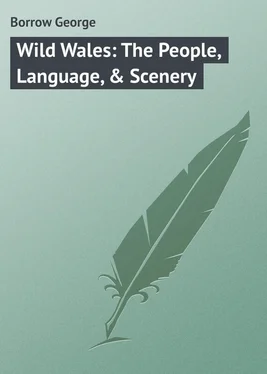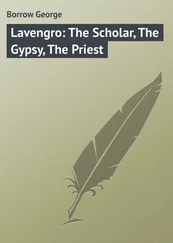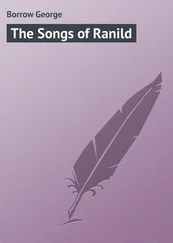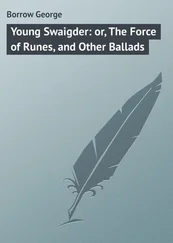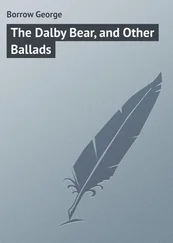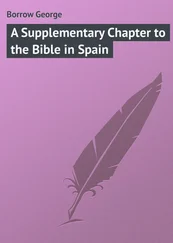George Borrow - Wild Wales - The People, Language, & Scenery
Здесь есть возможность читать онлайн «George Borrow - Wild Wales - The People, Language, & Scenery» — ознакомительный отрывок электронной книги совершенно бесплатно, а после прочтения отрывка купить полную версию. В некоторых случаях можно слушать аудио, скачать через торрент в формате fb2 и присутствует краткое содержание. Жанр: foreign_prose, Путешествия и география, на английском языке. Описание произведения, (предисловие) а так же отзывы посетителей доступны на портале библиотеки ЛибКат.
- Название:Wild Wales: The People, Language, & Scenery
- Автор:
- Жанр:
- Год:неизвестен
- ISBN:нет данных
- Рейтинг книги:5 / 5. Голосов: 1
-
Избранное:Добавить в избранное
- Отзывы:
-
Ваша оценка:
- 100
- 1
- 2
- 3
- 4
- 5
Wild Wales: The People, Language, & Scenery: краткое содержание, описание и аннотация
Предлагаем к чтению аннотацию, описание, краткое содержание или предисловие (зависит от того, что написал сам автор книги «Wild Wales: The People, Language, & Scenery»). Если вы не нашли необходимую информацию о книге — напишите в комментариях, мы постараемся отыскать её.
Wild Wales: The People, Language, & Scenery — читать онлайн ознакомительный отрывок
Ниже представлен текст книги, разбитый по страницам. Система сохранения места последней прочитанной страницы, позволяет с удобством читать онлайн бесплатно книгу «Wild Wales: The People, Language, & Scenery», без необходимости каждый раз заново искать на чём Вы остановились. Поставьте закладку, и сможете в любой момент перейти на страницу, на которой закончили чтение.
Интервал:
Закладка:
“I am a small farmer, sir,” said he, “and live at Llansanfraid Glyn Dyfrdwy across the river.”
“How comes it,” said I, “that you do not know English?”
“When I was young,” said he, “and could have easily learnt it, I cared nothing about it, and now that I am old and see its use, it is too late to acquire it.”
“Of what religion are you?” said I.
“I am of the Church,” he replied.
I was about to ask him if there were many people of his persuasion in these parts; before, however, I could do so he turned down a road to the right which led towards a small bridge, and saying that was his way home, bade me farewell and departed.
I arrived at Corwen, which is just ten miles from Llangollen and which stands beneath a vast range of rocks at the head of the valley up which I had been coming, and which is called Glyndyfrdwy, or the Valley of the Dee water. It was now about two o’clock, and feeling rather thirsty I went to an inn very appropriately called the Owen Glendower, being the principal inn in the principal town of what was once the domain of the great Owen. Here I stopped for about an hour refreshing myself and occasionally looking into a newspaper in which was an excellent article on the case of poor Lieutenant P. I then started for Cerrig y Drudion, distant about ten miles, where I proposed to pass the night. Directing my course to the north-west, I crossed a bridge over the Dee water and then proceeded rapidly along the road, which for some way lay between cornfields, in many of which sheaves were piled up, showing that the Welsh harvest was begun. I soon passed over a little stream the name of which I was told was Alowan. “O, what a blessing it is to be able to speak Welsh!” said I, finding that not a person to whom I addressed myself had a word of English to bestow upon me. After walking for about five miles I came to a beautiful but wild country of mountain and wood with here and there a few cottages. The road at length making an abrupt turn to the north I found myself with a low stone wall on my left on the verge of a profound ravine, and a high bank covered with trees on my right. Projecting out over the ravine was a kind of looking-place, protected by a wall, forming a half-circle, doubtless made by the proprietor of the domain for the use of the admirers of scenery. There I stationed myself, and for some time enjoyed one of the wildest and most beautiful scenes imaginable. Below me was the deep narrow glen or ravine down which a mountain torrent roared and foamed. Beyond it was a mountain rising steeply, its nearer side, which was in deep shade, the sun having long sunk below its top, hirsute with all kinds of trees, from the highest pinnacle down to the torrent’s brink. Cut on the top surface of the wall, which was of slate and therefore easily impressible by the knife, were several names, doubtless those of tourists, who had gazed from the look-out on the prospect, amongst which I observed in remarkably bold letters that of T..
“Eager for immortality, Mr. T.,” said I; “but you are no H. M., no Huw Morris.”
Leaving the looking-place I proceeded, and after one or two turnings, came to another, which afforded a view if possible yet more grand, beautiful and wild, the most prominent objects of which were a kind of devil’s bridge flung over the deep glen and its foaming water, and a strange-looking hill beyond it, below which, with a wood on either side, stood a white farmhouse – sending from a tall chimney a thin misty reek up to the sky. I crossed the bridge, which however diabolically fantastical it looked at a distance, seemed when one was upon it capable of bearing any weight, and soon found myself by the farm-house past which the way led. An aged woman sat on a stool by the door.
“A fine evening,” said I in English. “Dim Saesneg,” said the aged woman.
“O, the blessing of being able to speak Welsh,” said I; and then repeated in that language what I had said to her in the other tongue.
“I dare say,” said the aged woman, “to those who can see.”
“Can you not see?”
“Very little. I am almost blind.”
“Can you not see me?”
“I can see something tall and dark before me; that is all.”
“Can you tell me the name of the bridge?”
“Pont y Glyn blin – the bridge of the glen of trouble.”
“And what is the name of this place?”
“Pen y bont – the head of the bridge.”
“What is your own name?”
“Catherine Hughes.”
“How old are you?”
“Fifteen after three twenties.”
“I have a mother three after four twenties; that is eight years older than yourself.”
“Can she see?”
“Better than I – she can read the smallest letters.”
“May she long be a comfort to you!”
“Thank you – are you the mistress of the house?”
“I am the grandmother.”
“Are the people in the house?”
“They are not – they are at the chapel.”
“And they left you alone?”
“They left me with my God.”
“Is the chapel far from here?”
“About a mile.”
“On the road to Cerrig y Drudion?”
“On the road to Cerrig y Drudion.”
I bade her farewell and pushed on – the road was good, with high rocky banks on each side. After walking about the distance indicated by the old lady, I reached a building, which stood on the right-hand side of the road, and which I had no doubt was the chapel from a half-groaning, half-singing noise, which proceeded from it. The door being open I entered, and stood just within it, bare-headed. A rather singular scene presented itself. Within a large dimly-lighted room a number of people were assembled, partly seated in rude pews, and partly on benches. Beneath a kind of altar, a few yards from the door, stood three men – the middlemost was praying in Welsh in a singular kind of chant, with his arms stretched out. I could distinguish the words, “Jesus descend among us! sweet Jesus descend among us – quickly.” He spoke very slowly, and towards the end of every sentence dropped his voice, so that what he said was anything but distinct. As I stood within the door a man dressed in coarse garments came up to me from the interior of the building, and courteously and in excellent Welsh asked me to come with him and take a seat. With equal courtesy but far inferior Welsh, I assured him that I meant no harm, but wished to be permitted to remain near the door, whereupon with a low bow he left me. When the man had concluded his prayer the whole of the congregation began singing a hymn; many of the voices were gruff and discordant, two or three, however, were of great power, and some of the female ones of surprising sweetness – at the conclusion of the hymn another of the three men by the altar began to pray, just in the same manner as his comrade had done, and seemingly using much the same words. When he had done there was another hymn, after which seeing that the congregation was about to break up I bowed my head towards the interior of the building, and departed.
Emerging from the hollow way I found myself on a moor over which the road lay in the direction of the north. Towards the west at an immense distance rose a range of stupendous hills, which I subsequently learned were those of Snowdon – about ten minutes’ walking brought me to Cerrig y Drudion, a small village near a rocky elevation, from which, no doubt, the place takes its name, which interpreted, is the Rock of Heroes.
CHAPTER XXIV
Cerrig y Drudion – The Landlady – Doctor Jones – “Coll Gwynfa” – The Italian – Men of Como – Disappointment – Weather-Glasses – Filicaia.
The inn at Cerrig y Drudion was called the Lion – whether the white, black, red or green Lion I do not know, though I am certain that it was a lion of some colour or other. It seemed as decent and respectable a hostelry as any traveller could wish to refresh and repose himself in, after a walk of twenty miles. I entered a well-lighted passage and from thence a well-lighted bar room, on the right hand, in which sat a stout, comely, elderly lady dressed in silks and satins, with a cambric coif on her head, in company with a thin, elderly man with a hat on his head, dressed in a rather prim and precise manner. “Madam!” said I, bowing to the lady, “as I suppose you are the mistress of this establishment, I beg leave to inform you that I am an Englishman walking through these regions in order fully to enjoy their beauties and wonders. I have this day come from Llangollen, and being somewhat hungry and fatigued hope I can be accommodated, here with a dinner and a bed.”
Читать дальшеИнтервал:
Закладка:
Похожие книги на «Wild Wales: The People, Language, & Scenery»
Представляем Вашему вниманию похожие книги на «Wild Wales: The People, Language, & Scenery» списком для выбора. Мы отобрали схожую по названию и смыслу литературу в надежде предоставить читателям больше вариантов отыскать новые, интересные, ещё непрочитанные произведения.
Обсуждение, отзывы о книге «Wild Wales: The People, Language, & Scenery» и просто собственные мнения читателей. Оставьте ваши комментарии, напишите, что Вы думаете о произведении, его смысле или главных героях. Укажите что конкретно понравилось, а что нет, и почему Вы так считаете.
